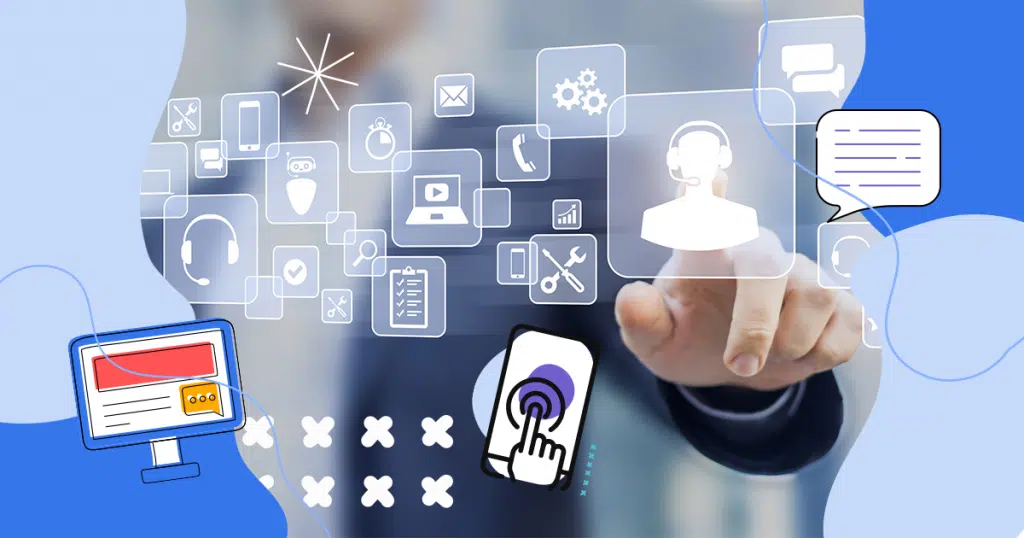Hiring in the Medical Device Industry: Strategies, Challenges, and Solutions
The medical device industry is rapidly expanding, driven by technological advancements, an aging population, and increasing healthcare demands. However, hiring in this highly regulated and specialized sector comes with significant challenges. Whether it’s finding regulatory experts, engineers, or software developers, the competition for top talent is fierce, and companies must take a strategic approach to recruitment.
In this article, we will cover essential strategies for recruiting talent in the medical device industry, highlight common challenges, and explore how partnering with specialist recruitment agencies can give medical device companies a competitive edge.
Why Recruitment in the Medical Device Industry is Unique?
The medical device industry is known for its stringent regulatory standards, requiring highly specialized skills across a range of roles. These can include biomedical engineers, regulatory affairs experts, and clinical research professionals. However, with the increasing digital transformation of healthcare, the need for specialized IT roles, such as software developers and digital healthcare experts, has also surged.
Hiring the right talent in this sector not only ensures compliance with regulatory bodies like the FDA and EU MDR, but it also enables companies to drive innovation, from product development through to post-market surveillance. Whether it’s hiring software developers for medical devices or recruiting customer support teams to assist with regulatory queries, getting the right talent is crucial for success.
Key Hiring Challenges in the Medical Device Industry
1. Sourcing Specialized Talent
One of the biggest challenges medical device companies face is finding candidates with the right mix of industry-specific knowledge and technical expertise. For roles such as regulatory affairs specialists, R&D engineers, or software developers for medical devices, candidates need deep industry experience and familiarity with strict regulatory requirements.
For example, as more devices integrate AI and cloud-based functionalities, the demand for professionals who understand both software development and regulatory guidelines is soaring. Likewise, the push for digital healthcare recruitment has increased the need for experts who can work at the intersection of healthcare and technology.
2. Navigating Complex Regulatory Requirements
The medical device industry is one of the most highly regulated sectors. Companies need to ensure that they comply with stringent guidelines set by organizations such as the FDA, ISO, and EU MDR. This makes hiring professionals with experience in regulatory affairs critical.
Hiring quality control engineers, regulatory compliance managers, and clinical trial coordinators who understand the regulatory landscape can ensure products move smoothly from conception to market.
3. Competing for Top Talent
With the growing demand for talent in the medical device sector, companies often find themselves competing with tech companies and pharmaceutical firms for highly specialized candidates. Offering competitive compensation, growth opportunities, and innovative projects is key to attracting these professionals.
Moreover, the rise in remote work and flexible working models following the COVID-19 pandemic has shifted candidate expectations. Startups in particular may face challenges offering the same compensation as larger organizations, making it essential to provide other incentives such as equity, flexible hours, and career development programs.

Best Practices for Hiring in the Medical Device Industry
1. Crafting a Strong Employee Value Proposition (EVP)
A clear and compelling Employee Value Proposition (EVP) is essential for standing out in the competitive medical device recruitment landscape. Highlight the unique aspects of working at your company, such as opportunities to work on cutting-edge technologies, make a meaningful impact on healthcare, and grow professionally.
Incorporating benefits such as equity compensation, flexible work arrangements, and continuous learning opportunities will help attract top talent, especially in high-demand roles like software development and regulatory affairs.
2. Partnering with a Medical Device Recruitment Agency
Working with a medical device recruitment agency can give companies access to a larger pool of qualified candidates, saving time and reducing the burden on internal HR teams. Specialist agencies, like ZusWork, understand the nuances of the industry and have deep networks of pre-vetted candidates ready for hire.
Recruitment agencies can assist in filling roles of sales teams for medical device companies, customer support agencies, or specialized technical positions like software developers for medical devices. They can also help streamline the hiring process by handling initial screenings and compliance checks.
3. Offering Flexible and Competitive Compensation Packages
In a highly competitive market, offering flexible and attractive compensation packages can be a game-changer. Medical device companies should benchmark their compensation packages against industry standards to remain competitive. Strategies to consider include:
- Equity Compensation: Offering shares or stock options as part of the compensation package can help attract top talent, particularly in startups or companies with high growth potential.
- Performance-Based Bonuses: Aligning compensation with company and individual performance can provide strong incentives for candidates.
- Flexible Work Models: Offering remote or hybrid working models, particularly for roles such as software development and customer support, can attract candidates seeking a better work-life balance.
4. Streamlining the Candidate Experience
The candidate experience plays a key role in attracting and retaining talent in the medical device industry. Companies should ensure that the recruitment process is smooth, engaging, and transparent. Here’s how:
- Optimize the Application Process: Make sure your job application process is easy and intuitive, with clear instructions and expectations. Use applicant tracking systems to streamline the process.
- Clear Communication: Keep candidates informed at every stage of the hiring process. Regular updates can enhance their experience and leave a lasting positive impression.
- Data-Driven Hiring: Leverage AI-powered tools and HR analytics to identify top candidates, predict hiring trends, and reduce hiring times.
5. Prioritizing Digital Healthcare Recruitment
The rapid digitalization of the healthcare industry has expanded the need for digital healthcare recruitment. Professionals skilled in healthcare IT, cybersecurity, data analytics, and software development for medical devices are in high demand. Companies that can find and recruit these professionals will be better positioned to innovate and thrive in an increasingly digital healthcare landscape.
Medical devices now rely on sophisticated software, cloud-based systems, and AI-driven diagnostics. Hiring software developers who can work alongside regulatory experts to ensure compliance is essential to developing safe and effective devices.
The Importance of Hiring the Right Sales and Customer Support Teams
In the highly competitive medical device industry, having a strong sales team and dedicated customer support agencies is essential for business growth. Sales teams must not only be skilled in building relationships with healthcare providers but also understand the regulatory landscape to effectively communicate product benefits and compliance.
Likewise, customer support agencies play a critical role in helping clients navigate the complex regulatory environment, troubleshoot issues, and maintain device safety and efficacy post-sale.

The Role of Recruitment Agencies in Medical Device Hiring
Recruitment agencies that specialize in medical device recruitment offer a distinct advantage in sourcing and vetting candidates. By partnering with a specialist recruitment agency, medical device companies can:
- Access a Broader Talent Pool: Recruitment agencies maintain extensive databases of candidates with specialized skills in areas such as digital healthcare, biomedical engineering, and regulatory compliance.
- Reduce Time-to-Hire: Recruitment agencies handle the initial stages of the hiring process, including candidate screenings and assessments, to ensure faster hiring times.
- Ensure Regulatory Expertise: For roles that require deep regulatory knowledge, agencies can help source professionals who understand the compliance landscape, ensuring your company remains in good standing with regulatory bodies.
Conclusion
Hiring for the medical device industry requires a specialized approach that takes into account the industry’s unique regulatory and technical challenges. By focusing on key strategies such as developing a strong EVP, leveraging recruitment agencies, offering competitive compensation, and prioritizing digital healthcare recruitment, medical device companies can secure the talent they need to thrive.
Whether you’re looking to hire software developers for medical devices, build a strong sales team, or find regulatory experts, working with a specialist medical device recruitment agency like ZusWork can help you navigate the complexities of recruitment and ensure long-term success.


